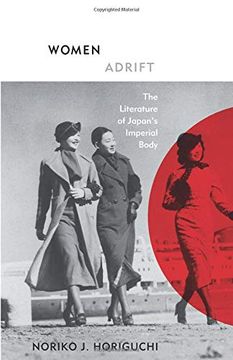Share
Women Adrift: The Literature of Japan's Imperial Body (in English)
Noriko J. Horiguchi (Author)
·
Univ Of Minnesota Pr
· Paperback
Women Adrift: The Literature of Japan's Imperial Body (in English) - Noriko J. Horiguchi
$ 3.98
$ 4.98
You save: $ 1.00
Choose the list to add your product or create one New List
✓ Product added successfully to the Wishlist.
Go to My WishlistsIt will be shipped from our warehouse between
Tuesday, July 09 and
Thursday, July 11.
You will receive it anywhere in United States between 1 and 3 business days after shipment.
Synopsis "Women Adrift: The Literature of Japan's Imperial Body (in English)"
Women's bodies contributed to the expansion of the Japanese empire. With this bold opening, Noriko J. Horiguchi sets out in Women Adrift to show how women's actions and representations of women's bodies redrew the border and expanded, rather than transcended, the empire of Japan.Discussions of empire building in Japan routinely employ the idea of kokutai-the national body-as a way of conceptualizing Japan as a nation-state. Women Adrift demonstrates how women impacted this notion, and how women's actions affected perceptions of the national body. Horiguchi broadens the debate over Japanese women's agency by focusing on works that move between naichi, the inner territory of the empire of Japan, and gaichi, the outer territory; specifically, she analyzes the boundary-crossing writings of three prominent female authors: Yosano Akiko (1878-1942), Tamura Toshiko (1884-1945), and Hayashi Fumiko (1904-1951). In these examples-and in Naruse Mikio's postwar film adaptations of Hayashi's work-Horiguchi reveals how these writers asserted their own agency by transgressing the borders of nation and gender. At the same time, we see how their work, conducted under various colonial conditions, ended up reinforcing Japanese nationalism, racialism, and imperial expansion.In her reappraisal of the paradoxical positions of these women writers, Horiguchi complicates narratives of Japanese empire and of women's role in its expansion.
- 0% (0)
- 0% (0)
- 0% (0)
- 0% (0)
- 0% (0)
All books in our catalog are Original.
The book is written in English.
The binding of this edition is Paperback.
✓ Producto agregado correctamente al carro, Ir a Pagar.

